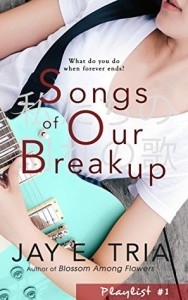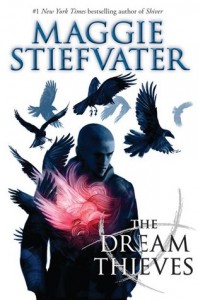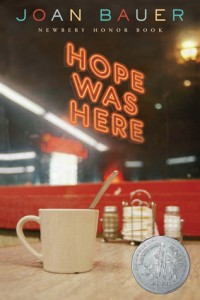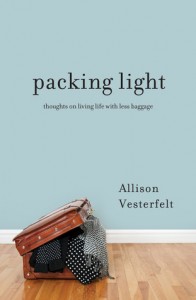 Songs of Our Breakup by Jay E. Tria
Songs of Our Breakup by Jay E. Tria
Playlist # 1
Number of pages: 180
My copy:Â ebook
Every breakup has its playlist.
How do you get over a seven-year relationship? 21-year-old Jill is trying to find out. But moving on is a harder job when Kim, her ex-boyfriend, is the lead guitarist of the band, and Jill is the vocalist. Every song they play together feels like slicing open a barely healed tattoo.
Jill’s best friend Miki says she will be out of this gloom soon. Breakups have a probation period, he says. Jill is on the last month of hers and Miki is patiently keeping her company.
But the real silver lining is Shinta. Having a hot Japanese actor friend in times like these is a welcome distraction. This gorgeous celebrity has been defying time zones and distance through the years to be there for Jill. Now he is here, physically present, and together he and Jill go through old lyrics, vivid memories, walks in the rain, and bottles of beer. Together they try to answer the question: what do you do when forever ends?
As I mentioned in my Open Road Summer review, I like books with music and bands. So when Jay E. Tria’s book, Songs for Our Breakup surfaced in my radar, I was curious although I was a bit hesitant with the Japanese-sounding characters because I’m not a huge fan of foreign lead interests in my Filipino romance novels. I think I was in line at a bank without a book when I decided to read this, and a few pages in the book, I was hooked.
Jill and Kim have been together for seven years, until their break-up came that ended the relationship that Jill has known for a third of her life. It’s even more difficult to move on, because her ex-boyfriend is the lead guitarist of the band where Jill is the vocalist. And as expected, most of the songs they sing share memories of their relationship and Jill’s not sure how much her heart could take. Her best friend, Miki, stays by her side, picking her up when things get too hard, and then there’s their other friend, Shinta, a Japanese celebrity that they befriended during one music festival. Shinta provides the distraction that Jill needed, as she wrestles with the questions that the break-up has left with her.
Let me get the obvious thing out of the way: the book shares an almost similar title with the Piolo-Sarah movie that came out a few months ago, but like what other reviews said, it’s different from that. I should know, because I watched that movie. :P There’s so much more going on in Songs of Our Breakup compared to that movie, and it was made entertaining because of the fun cast in this book. I loved everyone in the band, Trainman, and how their friendship seemed to spring alive in every page. I loved their banter, how they played off one another and know each other so well that even if there’s this elephant in the room with them, the rest of them fought for their friendship and the band just to keep them together.
And then of course, there’s Shinta, who was a delight to read. I liked him, and perhaps all his screen time made me join his team early on in the book. I liked how he also felt like a member of the band because of his friendship with them, and how he was especially fun and gentle with Jill. His storyline wasn’t so surprising, but it was still a pleasure to watch that unfold and I was really cheering for him at the end of the book. However, I also can’t deny that my heart went out for Miki, the best friend, because…well, he’s the best friend, and I also have a soft spot for those characters! I liked him, and I wished that he did something different in the book to give him his share of the spotlight…but if he did, then we probably wouldn’t have book 2. ;)
As with every book with a band and songs, I wished the songs here were real. I’m not sure if Trainman would be the kind of band I would religiously follow, but I would probably enjoy their songs if I catch them in a gig or something. I liked how the songs in this book fit exactly with the major moments in the book. And because we’re all about heartbreaks and feels for this book, I have to say that the last duet kind of destroyed my heart (and made me almost waver with my team choice haha). If there’s any song in the book that I want to be real, it’s that duet. Please let that happen?
With all those points, plus the great writing, I thoroughly enjoyed Songs of Our Breakup. It gave me so many feelings after I was done (which I realized probably contributed to the feelings I had later that night when I watched Heneral Luna, but that’s another story) that I couldn’t stop thinking about it after. This book also made me kind of appreciate Japanese lead interests, because hey, if it’s someone like Shinta, then why not? :P Songs of Our Breakup is not exactly for light reading because of all the feelings, but there’s something pretty cathartic about this if you allow yourself to indulge and accompany Jill in her story. I can’t wait to read the next book (because Miki!), and really, just read whatever Jay comes up with next. :)
Rating:Â [rating=5]
Favorite quotes:
“You don’t really stop loving someone…it’s just that you’re different now from the person you were yesterday. And you can’t go back. Even if you can, why would you want to?”
Why don’t they teach that in school? Emotional Safety 101. How to love without losing your sanity. Instead of people running around claiming they feel it, while not knowing what to do with it, how to handle it, how not to break it, how to keep it whole. It’s a terribly dangerous thing in the wrong hands.
“Oh, you’re not built for depression. You have too much sarcasm in your veins. That protects you.”
So I stand here on the train tracks,
Waiting for you to look back
Turn back
And see me
Sliding in the slipstream
Tumbling in this daydream
But you don’t see me
No, it’s never me.
Other reviews:
Will Read For Feels
Tara Tries to Write



 Hope Was Here by Joan Bauer
Hope Was Here by Joan Bauer Packing Light: Thoughts on Living Life with Less Baggage by Allison Vesterfelt
Packing Light: Thoughts on Living Life with Less Baggage by Allison Vesterfelt